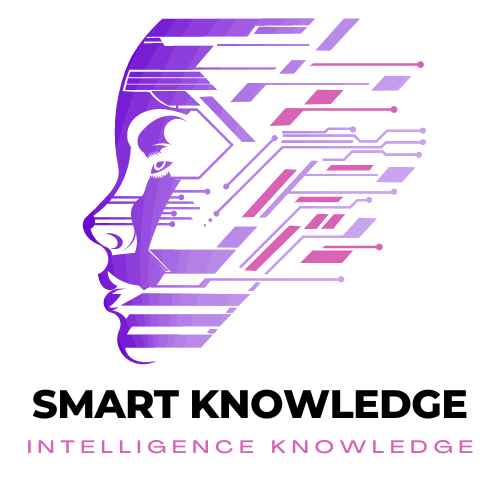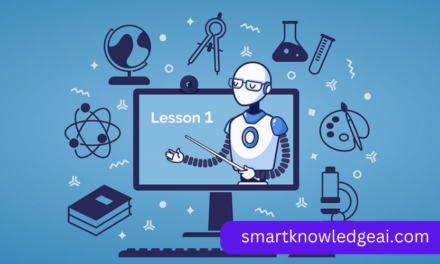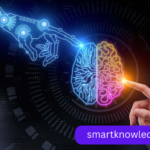Introduction
Artificial Intelligence (AI) in digital marketing is revolutionizing by providing new tools that enhance customer targeting, personalize content, and optimize ads. AI-powered platforms can analyze data, predict trends, and automate many tasks, helping businesses make smarter marketing decisions. This blog explores how AI is reshaping digital marketing strategies and the key tools marketers can use to stay competitive in today’s digital landscape.
1. Personalized Content Creation with AI
One of the main ways AI is transforming digital marketing is through personalized content creation, enabling brands to deliver tailored experiences to their audiences.
- Data-Driven Content Suggestions: AI algorithms can analyze user data to recommend content topics and formats based on audience preferences. By analyzing data on past user behavior, AI tools suggest relevant content that keeps readers engaged.
- Dynamic Content for Websites and Emails: AI enables the creation of dynamic content, which changes based on the viewer’s preferences, location, and behavior. This means websites and email campaigns can show tailored messages, increasing relevance and improving engagement.
- Content Curation and Recommendations: AI also powers content recommendation engines used by platforms like Netflix and YouTube, which suggest content based on user behavior. Brands can integrate similar AI-driven recommendation engines to keep visitors engaged with their content.

2. Optimizing Advertising with AI-Powered Insights
AI has transformed digital advertising by helping businesses optimize their ads and reach their target audience more effectively.
- Automated Ad Bidding: AI tools like Google Ads use machine learning to automate the bidding process, optimizing ad spend to reach the right audience. This ensures that businesses get the most out of their advertising budgets.
- Targeted Ad Placement: AI enables hyper-targeted ad placement by analyzing user demographics, interests, and behavior. With AI, brands can ensure that ads appear to audiences who are most likely to engage, improving ROI.
- Predictive Analytics for Ad Performance: By analyzing historical data, AI can predict which ads will perform well and recommend adjustments to improve outcomes. Predictive analytics helps businesses make data-driven decisions about their ad strategies.
3. Enhancing Customer Engagement with AI Chatbots
AI-driven chatbots have become an essential part of customer service, allowing businesses to engage with customers in real time.
- 24/7 Customer Support: Chatbots provide around-the-clock support, answering customer inquiries and resolving issues quickly. This ensures that businesses are accessible to customers at all hours, improving customer satisfaction.
- Personalized Interactions: AI chatbots can remember past interactions, allowing them to provide more personalized responses to users. By addressing specific customer needs, AI chatbots make interactions feel more human and personalized.
- Efficient Handling of Repetitive Tasks: Chatbots can handle common questions and repetitive tasks, freeing up human customer service agents to focus on more complex inquiries. This improves efficiency and ensures customers get fast, accurate responses.
4. AI-Driven Insights for Marketing Strategy Optimization
AI helps marketers make data-driven decisions that refine their strategies and maximize ROI.
- Customer Behavior Analysis: AI can analyze customer behavior across different platforms, providing insights into preferences and engagement patterns. This data helps marketers understand their audience better and adjust their campaigns accordingly.
- Sentiment Analysis for Brand Reputation: AI-powered sentiment analysis tools track customer sentiment on social media and review sites, helping brands gauge how their audience feels about their products. This data can inform decisions on customer outreach and public relations strategies.
- Campaign Performance Tracking: AI tools track the performance of marketing campaigns, identifying areas that need improvement. Real-time performance data enables marketers to adjust campaigns on the fly, maximizing their impact.
5. AI in Digital Marketing: Reaching the Right Audience
Social media marketing benefits significantly from AI-driven tools that help brands connect with their target audience more effectively.
- Audience Targeting: AI helps marketers target specific audiences based on user demographics, interests, and behaviors. This ensures that social media ads reach users who are more likely to engage with the content.
- Content Scheduling and Optimization: AI tools can analyze when audiences are most active on social media, helping brands schedule posts at optimal times for maximum engagement. Some AI tools even recommend which content types perform best on different platforms.
- Influencer Identification: AI tools can identify potential influencers who align with a brand’s values and audience. By selecting the right influencers, brands can improve their reach and connect with potential customers authentically.
6. Marketing Automation with AI for Efficiency Gains
AI-powered marketing automation tools streamline repetitive tasks, freeing up time for marketers to focus on strategy.
- Automated Email Campaigns: AI tools can create and schedule email campaigns based on user behavior, such as past purchases or engagement with content. Automated emails allow brands to maintain contact with customers and nurture leads without manual effort.
- Lead Scoring and Nurturing: AI algorithms can score leads based on their likelihood to convert, helping marketers prioritize high-potential leads. AI also automates lead nurturing, sending relevant content to leads based on their position in the sales funnel.
- A/B Testing and Optimization: AI-powered tools automate A/B testing, enabling marketers to test different ad copy, images, or CTAs and automatically select the best-performing options. This ensures that campaigns are optimized for maximum effectiveness.

7. Predictive Analytics in Digital Marketing
Predictive analytics is one of AI’s most powerful applications in digital marketing, helping brands anticipate trends and prepare for future demand.
- Forecasting Sales Trends: By analyzing historical data, AI can forecast sales trends and identify patterns in customer behavior. This information allows businesses to adjust their strategies in response to anticipated changes in demand.
- Customer Lifetime Value Prediction: AI algorithms can predict customer lifetime value (CLV), allowing businesses to focus on high-value customers. By understanding CLV, brands can allocate resources to nurture valuable relationships.
- Churn Prediction: AI can identify customers who are likely to stop using a product or service, allowing brands to implement retention strategies proactively. This helps reduce churn and improve customer loyalty.
8. Ethical and Responsible AI in Marketing
While AI offers many advantages, ethical considerations are essential to ensure responsible use in digital marketing.
- Data Privacy: Marketers must handle customer data responsibly and adhere to data privacy laws, such as GDPR and CCPA. Brands should be transparent about how they collect and use data, building trust with their audience.
- Avoiding Bias in AI Algorithms: AI algorithms can inadvertently introduce bias, affecting targeting and personalization. Marketers must ensure that AI tools are transparent and free from bias to maintain fairness in marketing practices.
- Transparency in AI-Driven Marketing: Customers increasingly value transparency from brands, especially regarding AI. Businesses should be open about the use of AI in marketing and how it benefits their audience.
Conclusion
AI is transforming digital marketing by making it more efficient, data-driven, and customer-focused. From automating routine tasks to personalizing content and predicting customer behavior, AI helps brands enhance their marketing strategies and improve customer engagement. As AI continues to evolve, businesses that adopt responsible AI practices in digital marketing will be well-positioned to thrive in the digital age.









